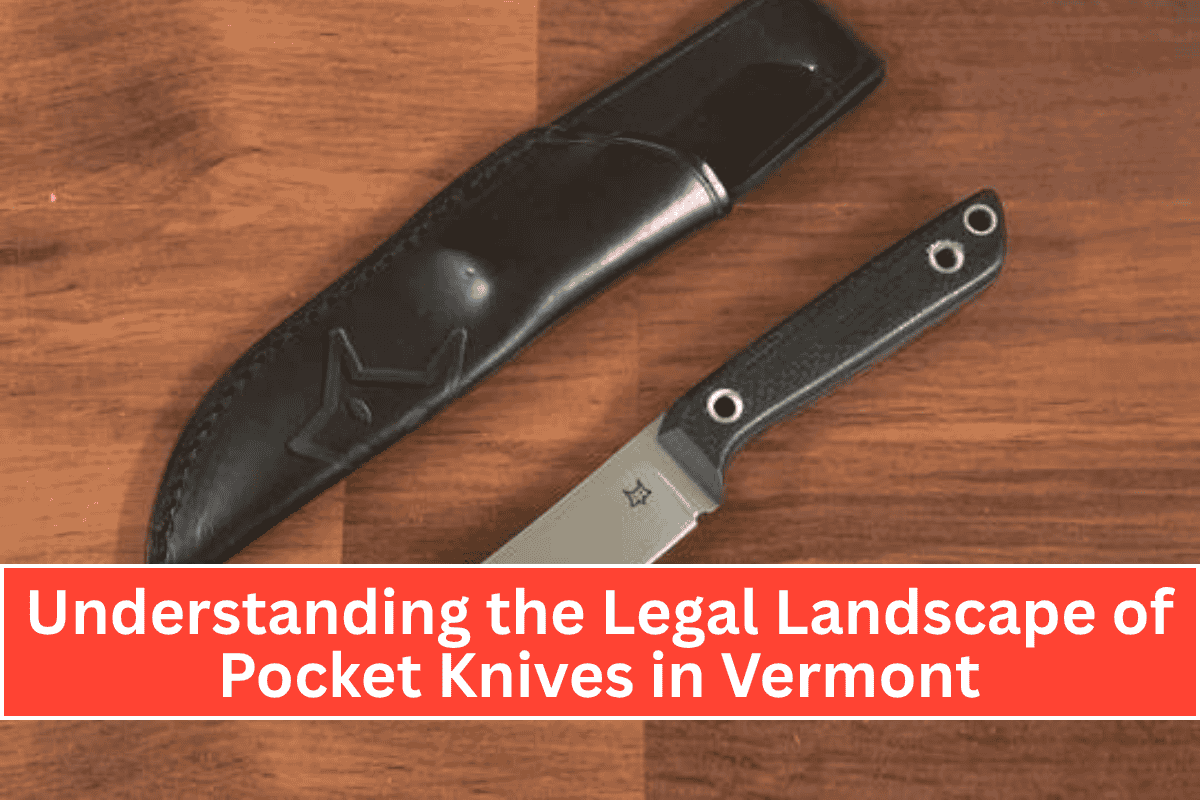Whether you’re a resident or just visiting Vermont, it’s important to understand the state’s knife laws. This guide will break down the key points about who can carry knives, what types are legal, and any age-related restrictions. Let’s dive in and ensure you’re fully informed.
Is There Statewide Preemption?
Vermont has statewide preemption when it comes to knife laws. This means that local municipalities cannot create more restrictive regulations than those set by state law. So, any local ordinances cannot override Vermont’s rules on knives[1].
Who Can Buy and Carry a Knife in Vermont?
Vermont does not impose age restrictions on buying or carrying knives. However, there are a couple of restrictions to be aware of:
Concealed carry in state institutions: It is illegal to carry a concealed knife onto the grounds of a state institution, such as a school or courthouse.
Carrying with intent to harm: It’s also illegal to carry a concealed knife with the intent to harm another person[1].
Can a Minor Carry a Knife?
While there are no specific age restrictions for owning or carrying knives in Vermont, minors under 16 cannot legally purchase or be given a dangerous weapon, including knives, unless provided by a parent or guardian[1].
What Kinds of Knives Are Legal in Vermont?
As of 2023, all types of knives are legal in Vermont, including those that were once restricted. This includes:
Balisongs (butterfly knives)
Automatic knives (switchblades) (Previously restricted, but restrictions lifted in November 2022)
Push knives
Karambits
Swords
Daggers
Neck knives
Fixed blade knives[1]
What Kinds of Knives Are Illegal in Vermont?
There are no knives explicitly deemed illegal in Vermont as of 2023. However, automatic knives (switchblades) with blades longer than 3 inches were previously restricted, but this restriction has been lifted. So, you can now legally own and carry switchblades regardless of their blade length, as long as they don’t exceed the 3-inch mark.
Are There Knife Length Laws in Vermont?
In Vermont, most knives do not have length restrictions, except for automatic knives (switchblades), which cannot have a blade longer than 3 inches[1]. Other than that, you are free to carry knives of various lengths.
Consequences for Violating Knife Laws in Vermont
If you violate Vermont’s knife laws, you could face significant penalties:
Carrying a concealed knife onto state institution grounds can lead to up to one year in jail and/or a fine of up to $500.
If a knife is used with the intent to harm someone, it could be classified as a dangerous or deadly weapon, which would result in more severe penalties depending on the situation and the individual’s criminal history[1].
Are There Any Knife Laws Unique to Vermont?
Vermont is known for having relatively lenient knife laws compared to other states. There are no specific Vermont-only laws that apply to knives, but the lack of restrictions on types and the freedom to carry knives openly or concealed sets Vermont apart from other places with stricter rules[1].
Specific Questions About Vermont Knife Law
Are knives considered dangerous weapons in Vermont?
Yes, knives can be classified as dangerous or deadly weapons if used or intended to be used in a way that could cause death or serious injury.
Can I carry a knife in schools and government buildings?
It is illegal to carry a concealed knife onto the grounds of schools or government buildings, and violating this law can lead to serious consequences.
Do I need to inform the police if I am carrying a knife?
While Vermont law does not require you to inform the police that you are carrying a knife, it’s always a good idea to do so, especially if you’re involved in a situation like a traffic stop.
Is it legal to carry a knife for self-defense in Vermont?
Vermont law does not prohibit carrying a knife for self-defense. However, carrying a knife with the intent to harm another person could result in severe legal consequences.
Are throwing knives legal in Vermont?
There are no specific laws in Vermont prohibiting throwing knives, so they are generally allowed. However, check local ordinances, as they may impose their own restrictions.
Do I need a permit to carry a knife in Vermont?
No, Vermont does not require a permit to carry most knives.
What happens if I get caught with an illegal knife?
If you’re caught with a knife that violates Vermont’s laws, you could face fines, jail time, or other legal penalties.
Can I carry a knife while hunting or fishing in Vermont?
Yes, carrying a knife while hunting or fishing is legal in Vermont, but make sure you adhere to any other restrictions regarding specific knife types.
Can I transport knives in my car in Vermont?
There are no specific laws preventing you from transporting knives in a vehicle. However, if the knife is easily accessible and carried with the intent to harm, it could be considered a concealed weapon, which might result in legal consequences.
Timeline of Major Changes
1959: Prohibition on the possession or sale of switchblade knives with a blade longer than three inches.
2003: The court in State v. Turner ruled that a 3-inch knife could be considered a dangerous weapon.
2015: Bill HB 165 proposed prohibiting municipal regulations on knives.
2019-2022: Bills introduced to repeal the ban on switchblade knives and lift restrictions on automatic knives.
2022: The bill to remove restrictions on automatic knives was signed into law.
Vermont has some of the most lenient knife laws in the country, allowing residents and visitors to legally carry various types of knives, including automatic knives and switchblades.
However, it’s essential to know where and how you can carry them, especially around schools, government buildings, and when traveling with knives in your vehicle. Be aware of specific laws regarding concealed carry and knives with harmful intent to avoid legal trouble.












